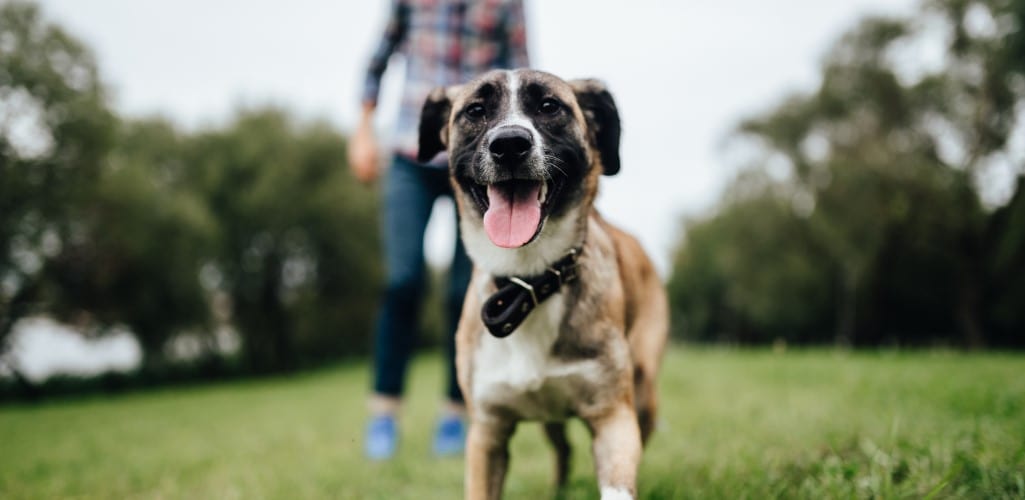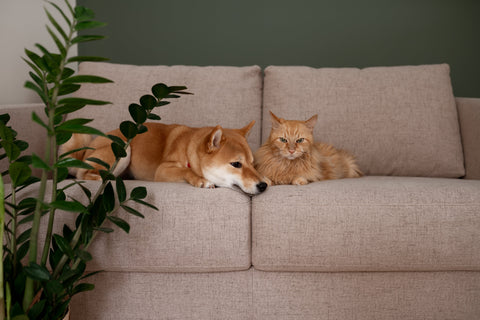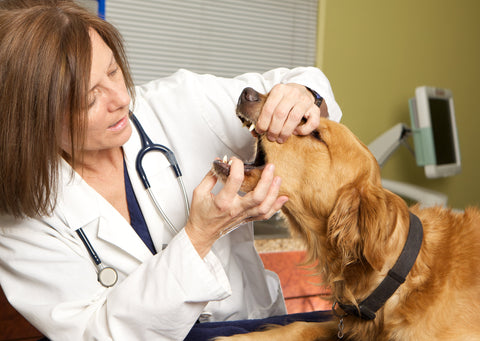

Come Back! How to teach a dog recall
There are so many things you have to teach your dog. How to sit. How to stay. When they’re allowed to eat and what they’re allowed to eat. What they have to do to earn a treat, and which chairs, sofas and beds are out of bounds.
Of all the different things you have to teach your dog, though, one of the most important has to be to come when they’re called.
Why dogs must learn the art of recall

No two ways about it, recall training is a must for every dog. Otherwise, the risks are just too much. If your dog doesn’t come back when you call them, it could simply be embarrassing or inconvenient.
There they are, sludge dripping off them from nose to tail because you couldn’t stop them from taking an impromptu mud bath. Or perhaps they’ve invaded a picnic and snaffled a sausage roll before anyone could swat them away. (Mind you, is anyone quick enough to stop a Labrador that’s sniffed out a sausage roll? We doubt it.)
However, the consequences of having an ‘unrecallable’ dog could be considerably more serious. Your dog could harm itself or other animals. They could frighten children or people who are scared of dogs. And they could cause you complete heartbreak if they get lost and can’t be found.
Which dogs are hardest to recall?
It’s clearly vital to train your dog to come when you call them. But which breeds can be the least responsive to the recall command?
You’d think that dogs that have hunting in their blood would be less biddable than a lap dog, for example. And you’d be right.
Sighthounds such as whippets, greyhounds and Irish wolfhounds have a keen prey drive. At the slightest scent of a rabbit, they’re yomping off into the distance, their eyes on the prize. You can yell all you like, but the chances are they won’t be listening.
The same goes for other hunting breeds such as terriers and poodles. Dachshunds are also liable to revert to type when faced with the possibility of an off-lead hunting adventure. Originally bred to hunt badgers by barrelling into their burrows, dachshunds can find it hard to resist the thrill of the chase.
However, all breeds can be trained to respond to the recall command. You might just need to be more persistent with a Lurcher than with a Border Collie.
Start them young

As with any type of training, the best way to teach your dog to come when you call is to start when they’re just a puppy. Their little doggy brains are most receptive to learning when they’re young, so you can start training them as soon as they arrive in your home, which is usually around eight weeks old.
Only start on recall training once they’ve got the hang of learning how to sit and stay.
Here are some common principles that apply with any puppy training:
- Be patient. This is something new for your pup, so don’t expect them to get it right first time.
- Be consistent. Make sure you only reward the precise behaviour that you’re looking for.
- Focus on the positive. Use a positive, upbeat voice to congratulate your pup when they do the right thing.
- Make your training motto ‘little but often’. Once a day for five minutes is better than half an hour once a week.
- Have some high-value, healthy treats on hand. Small pieces of fresh, cooked chicken should do the trick.

Training your puppy to come when you call
Here are a few simple steps to follow to train your pup in recall.
- Start with your dog on a lead a short distance away from you.
- Use a consistent phrase, such as “Come!” or “Here!” Make sure you only use that phrase when you want to recall your puppy.
- Don’t make your dog sit when they come back to you, or they might think you’re rewarding them for sitting, rather than for coming back.
- As soon as the puppy obeys your command, reward them with a treat and praise. Remember, keep it positive. Don’t tell your pup off for bad behaviour. Reward them when they get it right.
- Once your dog reliably comes when you call, try calling them to you off the lead. Be calm and consistent, and keep trying. It may take a while before your puppy understands what you want from them.
- Change the game or reward. Make training fun for your puppy by changing it up from time to time. You might swap the food treat for a ball or a favourite toy. You might also change the activity into a game of chase, so your puppy chases you and is rewarded for ‘catching’ you.
However you decide to train your puppy in recall technique, keep engaging with your dog and praising them when they come when you call. The idea is to make sure that they associate the recall phrase with fun and praise. This way, when you call them and it really matters, they’ll pay more attention to you than to the potential distraction.
Training your older dog

It’s always going to be easiest to train a young dog, as this is when they’re learning all about the world and are most open to change.
However, if you’ve adopted an older dog or feel that your pooch just isn’t listening to you like they used to, you can still teach them to come when you call. Luckily, it is possible to teach an old dog new tricks.
You could use exactly the same method as we described for puppies. Or you could try some of the approaches described here. For all of these methods, you need to be in a safe, contained space such as your garden and to have some tasty treats on hand.
- ‘Chase me’. Call your dog, reward them with a treat when they come to you, then run a few feet away, call them, and reward them again when they run to join you.
- ‘Call when they’re running’. This sounds counter-intuitive, but you might want to give it a try. When your dog is already running towards you, use the “Come!” command and reward them with a treat when they reach you.
- ‘We’re playing a game’. Play with your dog, for example by throwing a ball or their favourite toy in the air. While they’re involved in the game, run a short distance away and use your recall command. Reward them with a treat when they come over to you.
Do you have any brilliant recall training tips to share? Do join our friendly dog-loving community over on Facebook and Instagram and let us know what’s worked for you.



